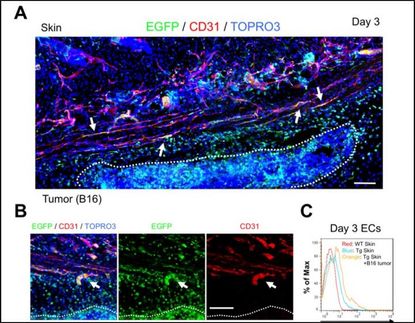Merck Serono Expands Cilengitide Development Program
Cilengitide clinical development program now aimed at three cancer types
Advertisement
Merck Serono announced the launch of its Phase II clinical study CERTOa, which will investigate the efficacy and safety of the novel combination of the investigational integrin inhibitor, cilengitide, and Erbitux® (cetuximab), with cisplatin and either vinorelbine or gemcitabine, as 1st-line treatment for patients with advanced non-small cell lung cancer (NSCLC).
This study is a new addition to Merck Serono's global clinical development program that is evaluating cilengitide in a number of cancer types with high unmet medical need. The clinical program has been focusing on CENTRICb so far - a Phase III clinical trial in glioblastoma multiforme (GBM). It now also includes the recently started COREc trial in GBM and ADVANTAGEd in squamous cell carcinoma of the head and neck (SCCHN). ADVANTAGE began enrolling patients in October 2008.
"Despite recent advances in NSCLC treatment, it remains a notoriously difficult-to-treat cancer with a poor prognosis," said Professor Johan F. Vansteenkiste from University Hospital Gasthuisberg, Leuven and Chair of the CERTO trial Steering Committee. "The combination of the selective integrin inhibitor cilengitide and the targeted agent Erbitux plus platinum-based chemotherapy, is being studied in NSCLC in the CERTO trial. The results of this trial will hopefully lead the way to even better outcomes for lung cancer patients."
"In previous trials, cilengitide has already shown clinical activity in GBM in combination with chemoradiation and as a single agent, with only rare incidents of grade 3 or 4 related toxicity. Cilengitide is now being tested in combination with Erbitux and standard chemotherapy in NSCLC," said Dr. Frank T. Weber, Senior Vice President and Head of Medical Science and Innovation at Merck Serono. "Combination is key for patients and these trials demonstrate our continued commitment to the development of novel anti-cancer therapies."
Cilengitide, developed in Merck's own laboratories, is the first in a new class of investigational anti-cancer therapies called integrin inhibitors to reach Phase III development. Integrin inhibitors target integrins - specific cell surface receptors that are improperly regulated in many tumor types and involved in cancer growth. Cilengitide is thought to work by targeting tumor cells directly and by preventing the formation of new blood vessels to the tumor, a process known as angiogenesis.
























































